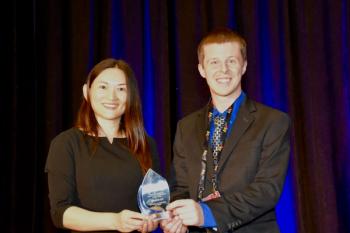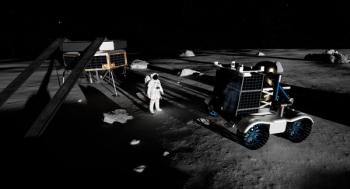
Annual Award Recognizes Innovative Academic Research in Remote Sensing
ASD Inc. (Boulder, Colorado) has announced the Alexander Geotz Instrument Support Program award recipients for 2012.
ASD Inc. (Boulder, Colorado) has announced the Alexander Geotz Instrument Support Program award recipients for 2012. This year’s seven winning research projects range from hyperspectral analysis to non-invasive identification of artistic materials.
The award is named for ASD’s cofounder and chief scientist Alexander Goetz, who is recognized as a pioneer in the fields of remote sensing and imaging spectrometry. Geotz is often referred to as “the father of hyperspectral imaging” and has played a critical role in developing portable instrumentation for field spectroscopy research applications.
The seven winners of the 2012 awards, all PhD and master’s degree candidates in their respective fields, were selected for their creative research projects that apply reflectance spectroscopy to advance understanding in their fields of study.
Research topics and winners of the 2012 Goetz Award Include:
Barbara Rasaiah, PhD Candidate in geospatial sciences, RMIT University (Melbourne, Victoria, Australia), Proposal Title: “The Role of Hyperspectral Metadata in Hyperspectral Data Exchange”
Chandi Witharana, PhD Candidate in the Center for Integrative Geosciences at University of Connecticut (Mansfield, Connecticut), Proposal Title: “Bridging the Knowledge Gaps on Applications of Advanced Earth Observation for Ecosystem Conservation Efforts Among Developing Nations”
Kurt Prospere, PhD Candidate in environmental biology at the University of the West Indies (Mona, Jamaica), Proposal Title: “Establishment of Spectral Libraries for the Identification of Wetland Vegetation in the Black River Lower Morass, Jamaica”
Anuradha Pallipurath, PhD Candidate in the department of chemistry at the University of Cambridge (Cambridge, UK), Proposal Title: “Non-invasive Identification of Artists’ Materials on Illuminated Manuscripts by Fiber Optics Reflectance Spectroscopy”
Angela Erb, Kiran Gurm, MSc students at the specialized master’s program in environmental sciences, University of Zurich (Zurich, Switzerland), Proposal Title: “Changing Vegetation Composition in the Arctic: Towards Quantifying Climate Feedbacks Through Shortwave Energy Fluxes and Methane Emissions”
Elizabeth Burakowski, PhD.Candidate earth and environmental science at the University of New Hampshire (Durham, New Hampshire), Proposal Title: “Spectral Surface Albedo of Forested and Cleared Land”
David Browning, Masters of science candidate in the department of geological sciences at the University of Idaho (Moscow, Idaho), Proposal Title: “Hyperspectral Remote Sensing In Mineral Exploration Applications: Using Ammonium-Illite as a Pathfinder for Gold”
The Goetz Program will provide these student researchers with access to the most advanced spectroscopy tools available, along with temporary use of field instrumentation.
The Goetz Program is co-sponsored by ASD Inc. and the Geoscience and Remote Sensing Society (Piscataway, New Jersey), a member organization of the Institute of Electrical and Electronic Engineers. This is the sixth year of the program.
Newsletter
Get essential updates on the latest spectroscopy technologies, regulatory standards, and best practices—subscribe today to Spectroscopy.




